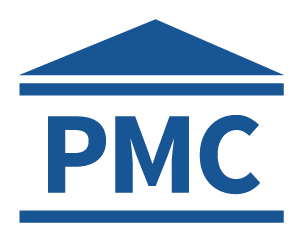xForgotMyName
Gold
- Joined
- Jul 12, 2019
- Posts
- 822
- Reputation
- 971
....if you don't eat correctly.
Cortisol is OK to be spiked a bit post workout, and inflammation is normal to happen post workout.
The purpose of you workout is to cause adaptations, and these 2 help with that.
BUT, if you have chronicly high cortisol, and you're in an inflammatory state, it's unhealthy and also a major cause of early ageing.
Working out is one of the most legit ways to extend your healthy active life on earth(and maybe the duration of your life as well).
Without enough magnesium you're making it a generator of too much cortisol and inflammation.
This is what they did

Looks how the cortisol increased after JUST ONE MONTH of gymcelling in the group without enough magnesium:
(look at the second graph only; the saliva cortisol is more important because it shows the active/bioavailable cortisol)

Look at the IL-6(inflammation indicator) rise in low magnesiumcels

Long story short:
eat MORE foods with magnesium and maybe supplement as well.
ps:
Cortisol is OK to be spiked a bit post workout, and inflammation is normal to happen post workout.
The purpose of you workout is to cause adaptations, and these 2 help with that.
BUT, if you have chronicly high cortisol, and you're in an inflammatory state, it's unhealthy and also a major cause of early ageing.
Working out is one of the most legit ways to extend your healthy active life on earth(and maybe the duration of your life as well).
Without enough magnesium you're making it a generator of too much cortisol and inflammation.

ACTH, Cortisol and IL-6 Levels in Athletes following Magnesium Supplementation
Physical exercise activates the hypothalamo-pituitary-adrenal (HPA) axis and induces the body’s inflammatory response. Due to contemporary dietary habits and increased energy expenditure, athletes are susceptible to depletion of magnesium ions. The ...www.ncbi.nlm.nih.gov
ACTH, Cortisol and IL-6 Levels in Athletes following Magnesium Supplementation
Background
Physical exercise activates the hypothalamo-pituitary-adrenal (HPA) axis and induces the body’s inflammatory response. Due to contemporary dietary habits and increased energy expenditure, athletes are susceptible to depletion of magnesium ions. The aim of our study was to investigate, through assessment of plasma ACTH, serum IL-6, and salivary/serum cortisol levels, if chronic magnesium supplementation might reduce damaging stress effects in amateur rugby players.
Methods
Rugby players (N=23) were randomly assigned to intervention and control group. Basal samples were collected before intervention group started a 4-week-long supplementation with magnesium (500 mg Mg/d). Blood and saliva sampling were done a day before the match (Day-1), on the morning of competition (Game), and during a six-day-long recovery period (Day1, Day3 and Day6). ACTH, serum/salivary cortisol, IL-6 and total/differential leukocytes counts were determined at each time point.
Results
- There was a statistically significant increase in ACTH concentration in intervention group compared to control group
- reductions in cortisol concentrations between the two groups were the greatest at Day-1 (p < 0.01) and at the day of competition (Game) (p < 0.01).
- Our results revealed that magnesium completely abolished the increase in IL-6 level noted in control group on Day1 and Day3 vs. Day-1 (p < 0.01) and also diminished the rise in neutrophil/lymphocyte ratio in intervention group vs. control group (p < 0.01).
Conclusions
These results suggest the possibly important influence magnesium supplementation might have on the change of parameters of HPA axis activity and reduction of immune response activation following strenuous physical exercise such as a rugby game.
This is what they did
Looks how the cortisol increased after JUST ONE MONTH of gymcelling in the group without enough magnesium:
(look at the second graph only; the saliva cortisol is more important because it shows the active/bioavailable cortisol)
Look at the IL-6(inflammation indicator) rise in low magnesiumcels
Long story short:
eat MORE foods with magnesium and maybe supplement as well.
ps:
During the next 28 days, players allocated to intervention group received 500 mg of magnesium, divided in two doses, twice a day with a 12 h interval between doses of 250 mg (Magnesium 250 mg ®, Natural Wealth®, NBTY Inc.).
Last edited:







